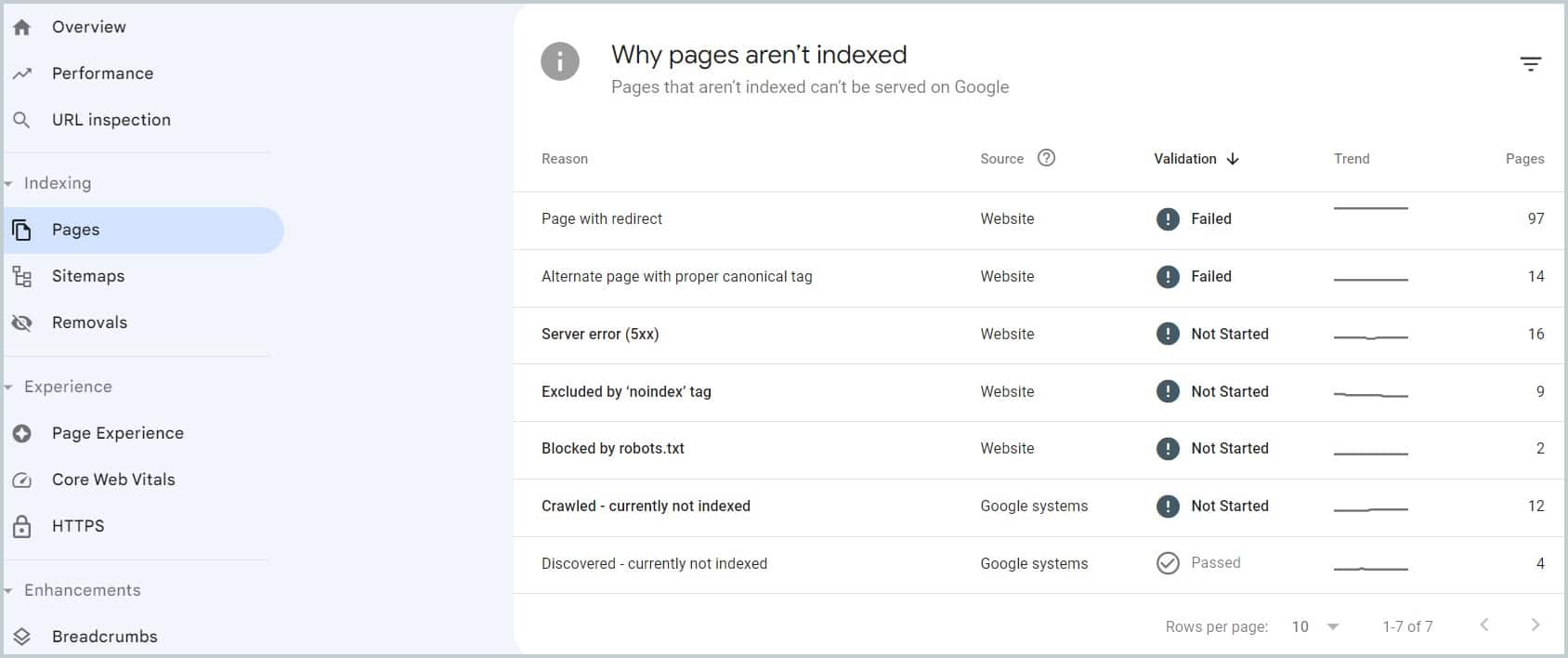Have you ever found yourself wondering what an SEO manager does? Are you an SEO manager looking for some new tricks of the trade? Or maybe you’re wondering if search engine optimization is a career field worth pursuing.
This article explores many aspects and responsibilities of an SEO manager and will give you a better understanding of what this position requires to be successful. We’ll cover on-page and off-page strategies, technical optimization, content creation, client interaction, and more.
Let’s jump in!
On-Page SEO
A great place to start is with on-page SEO. On-page SEO is the bread and butter of effective SEO management. This involves optimizing individual web pages to rank higher and earn more relevant traffic in search engines. For an SEO manager, this means meticulous work on elements like titles, headings, content, and internal links.
Ensuring that your content includes the right keywords and resonates with your audience is essential, as well as maintaining a balance between search engine algorithms and user engagement.
Note: Search engines (like Google) rank pages, not entire websites.
An SEO manager must ensure website pages do not conflict with each other while trying to rank for a particular keyword. This is called keyword cannibalization and requires an SEO to de-optimize one or more pages that are competing to rank for one or more keywords.
How to check for keyword cannibalization:
Go to Search Console > Search Results > Queries > Click on a “query” or keyword you’re interested in checking for cannibalization.

After clicking on the keyword, click on Pages, and you’ll see all your website URLs being served by search engines for the keyword.

If multiple pages are listed for a query, you have competing pages and can de-optimize the pages you don’t want to be shown for a keyword as needed.
Off-Page SEO
Off-page SEO refers to actions taken outside your website to impact your rankings within search engine results pages (SERPs). This includes strategies like link building, influencer outreach, and content marketing.
Effective SEO management recognizes the importance of building a network of backlinks and social signals.
Off-page SEO includes actively participating in relevant forums and online groups to increase brand exposure. Regularly contributing valuable content and insights in these spaces can lead to organic backlink opportunities.
Additionally, partnering with complementary businesses for guest blogging or co-hosted webinars can mutually benefit link sharing and audience expansion.
Technical SEO
Technical SEO involves optimizing your website and server’s technical aspects to help search engine spiders crawl and index your site more effectively. This can range from improving site speed to ensuring mobile-friendliness.
SEO management software, such as Screaming Frog, often includes features that assist in identifying and resolving these technical issues.
Finding and correcting 4xx errors, replacing redirected links, and correcting broken external links are just a few of the technical aspects that need to be monitored by an SEO manager.
Understanding and implementing technical SEO is critical to ensuring a site’s infrastructure supports and enhances overall SEO strategies. It’s not just about content and links; it’s also about providing a solid technical foundation for your site.
Content Creation
Content creation is at the heart of any successful SEO strategy, especially for an SEO manager focusing on long-term growth. It’s not just about churning out articles; it’s about crafting valuable, engaging content that resonates with your audience.
Good content meets the needs of your readers and encourages them to interact with your site, boosting key metrics like time on page and click-through rates.
It’s essential to balance content with intentional commercial goals, aiming to convert readers into customers or leads. However, incorporating a mix of informational content alongside commercial intent can build trust and authority, making your site a go-to resource for both solutions and information in your industry.
Competitive Analysis
Competitive analysis is an essential tactic for any SEO management company.
It’s all about understanding your competitors’ strategies and finding gaps your website can fill. This involves analyzing things like their keyword usage, content strategy, and backlink profile.
Tools for SEO management can be instrumental in this process, helping to identify what your competitors are doing well and where they might be lacking. Understanding the competitive landscape allows you to tailor your SEO strategy to match and surpass your competitors in key areas.
Customer Service and Client Communication
In SEO management, exceptional customer service is a critical factor, contributing indirectly to SEO success through positive reviews and repeat visits. This requires an SEO-optimized website and an SEO strategy that can be clearly explained and revised.
Effective client communication is essential in conveying complex SEO strategies like link management and local SEO strategies. As an SEO manager, it’s important to articulate these tactics clearly and set realistic client expectations and timelines.
Utilizing SEO management tools effectively can help present data in an understandable format, which is crucial for client comprehension. Regular updates and a transparent approach are critical in building trust and ensuring clients are well informed and involved.
Whether part of an SEO management company or working as a freelance expert, the core of client satisfaction lies in excellent communication. This focus on clear, concise interactions is fundamental for client retention and establishing long-term relationships.
Reputation Management
Reputation management is often mistakenly overlooked but is integral to SEO management services. It involves monitoring and influencing your brand’s reputation online. This includes managing online reviews, responding to customer feedback, and addressing negative content.
Doing so helps promptly address concerns and feedback and showcase your brand’s commitment to customer satisfaction and transparency.
Effective reputation management can significantly impact SEO, as positive reviews and customer interactions can enhance your visibility and credibility online.
As an SEO manager, it’s crucial to integrate reputation management into your overall strategy, ensuring that your brand maintains a strong, positive presence in the digital space.
SEO Reports
Creating comprehensive SEO reports that can be easily understood by a website owner or client is a critical task for any SEO manager. These reports provide insights into the effectiveness of your SEO strategies, from impressions gained to traffic growth.
However, It’s not just about presenting data; it’s about analyzing and interpreting it to make informed decisions. Effective reports help identify areas for improvement, showcase successes, and guide future strategies.
For clients or internal stakeholders, these reports are essential in demonstrating the value and impact of your SEO efforts.
Many SEO software applications on the market make creating an SEO report and scheduling it for delivery a breeze.
SEO reporting tools come in a wide variety of ease to use and cost, ranging from a monthly fee to free-to-use. Google’s Looker Studio is free and offers a quick and easy setup process for reporting.
Agency Analytics is available for a monthly fee, has a comprehensive reporting dashboard that is easy to set up, and offers customizable templates that make reports look professional.
Pro Tip: In addition to a monthly PDF report being emailed to our clients, we also send an SEO video summary explaining previous months’ SEO tasks that were performed, the tasks for next month, any suggestions we have, and essential news like Google search algorithm changes that may be affecting impressions and traffic or anything else we think is important.
SEO Audits
Not all SEO audits are conducted in the same form or fashion, but they are generally used to create the foundation for future SEO campaigns and strategies.
An audit can involve a thorough website analysis to identify strengths, weaknesses, and opportunities for improvement, or it can involve looking at a single aspect, like page speed or link structure, to strengthen these areas of a website.
Depending on the goal of the website audit, site structure, content quality, backlink profiles, and technical SEO issues are some of the specific details that may be important to include in an SEO audit.
Many audit tools in the SEO industry will give insights into the audit details we’ve just touched on. Screaming Frog is a popular and powerful tool for conducting these audits, providing a detailed breakdown of what can be improved on a website.
Google Search Console is a free and easy-to-use tool to see errors and issues Google has found on a website that may be preventing the site from performing at its best.
Specifically, the Pages section details why pages aren’t being indexed or if there are 4xx and 5xx errors.

For an SEO manager, regular audits are essential to avoid potential issues and continuously enhance the site’s performance in search engine results.
Note: If you have a website and want a FREE audit that details what our SEO team can do for you, click HERE.
Final Thoughts
While we’ve touched on various aspects of what an SEO manager does, we haven’t yet covered some topics, such as developing Standard Operating Procedures (SOPs), overseeing direct reports, local SEO, etc. But don’t worry. Updating articles with new and relevant information is on every good SEO manager’s “to-do” list.
Meanwhile, If you need an exceptional SEO team led by a top-notch SEO manager, don’t hesitate to contact us at LuccaAM. We’re ready to discuss your professional goals and how they can be realized through your website.
Thank you for reading, and stay tuned for more updates in the future!
FAQs
What are an SEO manager’s key responsibilities?
An SEO manager optimizes websites for search engines, managing both on-page and off-page strategies, technical aspects, content creation, client communication, and more.
How do SEO managers balance technical and creative work?
SEO managers combine technical know-how with creative content strategies to improve website ranking and user engagement.
What tools do SEO managers use?
They use tools like Screaming Frog for technical audits, Ahrefs or SEMrush for keyword research and content strategy, and Agency Analytics for reporting.
Why is client communication important in SEO management?
Clear communication is essential to explain strategies, set expectations, and build client trust, ensuring successful SEO outcomes.
- SEO Health Check: Ensuring Your Website’s Optimal Performance - July 16, 2024
- SEO for WordPress Websites: The Essentials - June 28, 2024
- SEO for New Websites: A Quick Start Guide - June 19, 2024
